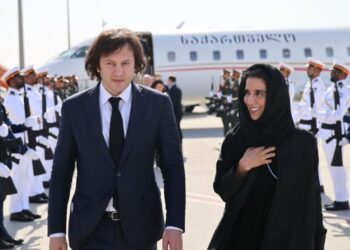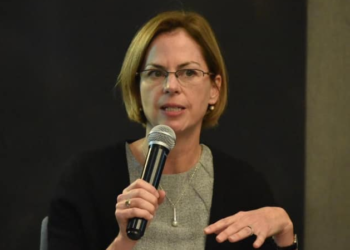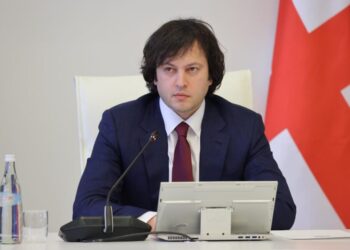One of the most commonly used definitions of globalization is that modern-day trade, technology and education have turned our planet into an unbelievably interlinked, interactive and interdependent place, which seems to be increasingly smaller and simpler now than it used to be. The concomitant new tendency of shared experience and human commonality is oriented on diminishing the sense of ethnic individualism, conducive to the eventual disappearance of not only national identity but the extant state borders too. At the same time, the desire to maintain national identity remains one of the most crucial characteristic features of our time. This is an apparent discrepancy, creating a clearly noticeable contradiction between promoters of globalization and advocates of national distinctiveness.
The notion of national identity and the belief in national sovereignty are losing their once-pivotal meaning to peoples and states, giving way to the concept of one big unified world with amalgamated cultures and ways of life. Sakartvelo is a land of the people who are eager to keep up their national identity and who find it painful to play deaf and blind to those lovely national features, manners, attitudes, beliefs, faith and model of behavior that constitute its ethnic and cultural uniqueness.
The best and the biggest corroboration of this statement was the massive rally of April 30 in Tbilisi, dedicated to Georgia’s peaceful, steady and unperturbed development, based on the general acceptance of commonly established international rules of play, but also on purely national interests and indigenous economic and ideological decisions.
Both the speakers and listeners deeply believed that maintenance of national identity harbors enough power to strengthen peace and enhance the Georgian people’s physical security, give impetus to improved handling of governmental affairs, make possible sustainable economic progress, stimulate the belief that loving each other is more helpful and productive than hatred and animosity, makes living more secure and the future much better guaranteed, within which strong national self-image and mutual understanding is sooner possible than not.
It was felt that the participants in the manifestation highly appreciated the sense of belonging which has always been, and still is, one of the most influential tools of survival in the daily life of this nation, which has become somewhat controversial today.
The Georgians usually think that the feeling of vivid national identity is not only a morally valuable and dramatic source for a high-quality and pleasurable life, but also a commanding tool in the nation’s international life, within which the win-win national position is to be likable, especially in expectation of the country’s incipient Euro-Atlantic integration. On the other hand, this kind of discourse might seem a little irrelevant when the age of nationalism has already come to an end, and the nations of the world precipitously tend to integrate into new various types of military, political or economic alliances, call it new empires if you wish, with modern democratic and liberal veneer. Yet, at the same time, there is something very sweet and lovely in being identified as a scion of a certain specific descent. This is exactly what the average Georgian is not prepared to give up in terms of their national distinctiveness, which adds a certain amount of gratifying eccentricity to life.
Just as agreeable is the tolerant cosmopolitan multicultural international community, within which overall survival purposes are better served than within an isolated national nutshell. For a relevant instance, the former Soviet family of nations, now often described as an Evil Empire, was a specific historical attempt to integrate nations into one sociopolitical conglomerate, allowing its nations to remain ethnic in form but socialist in content.
The golden median between globalist benefits and national delight is the model suggested by Thomas Freedman, who put his unique notion succinctly in the title of one of his famous books ‘Lexus and the Olive Tree’, meaning that simultaneous enjoyment of modern ways of living and maintenance of the roots would work most optimally in modern Man’s complicated and technologically overwhelmed life.
In a word, the national-identity mindset and the ethnic-traditional way of thinking should not be an obstacle on the way to improving and embellishing our integrated and intertwined contemporary world, one which treats us the humans to a whole gamut of threats and boring trivialities unless we try on our own to make life as good and interesting as we possibly can.
Op-Ed by Nugzar B. Ruhadze














